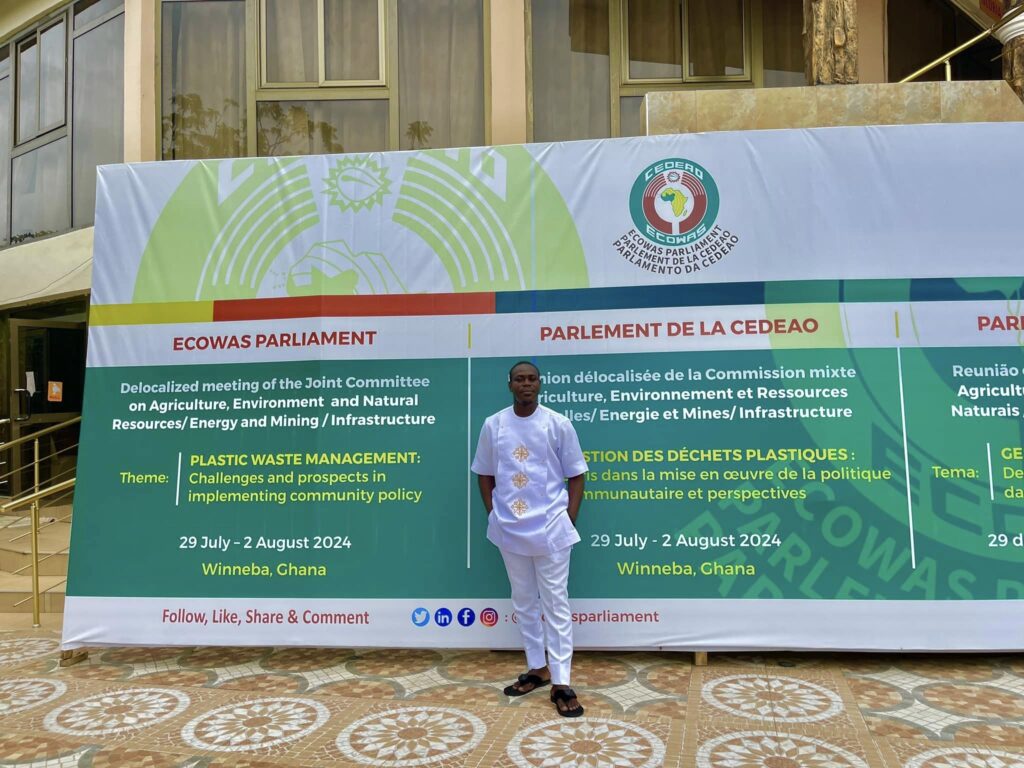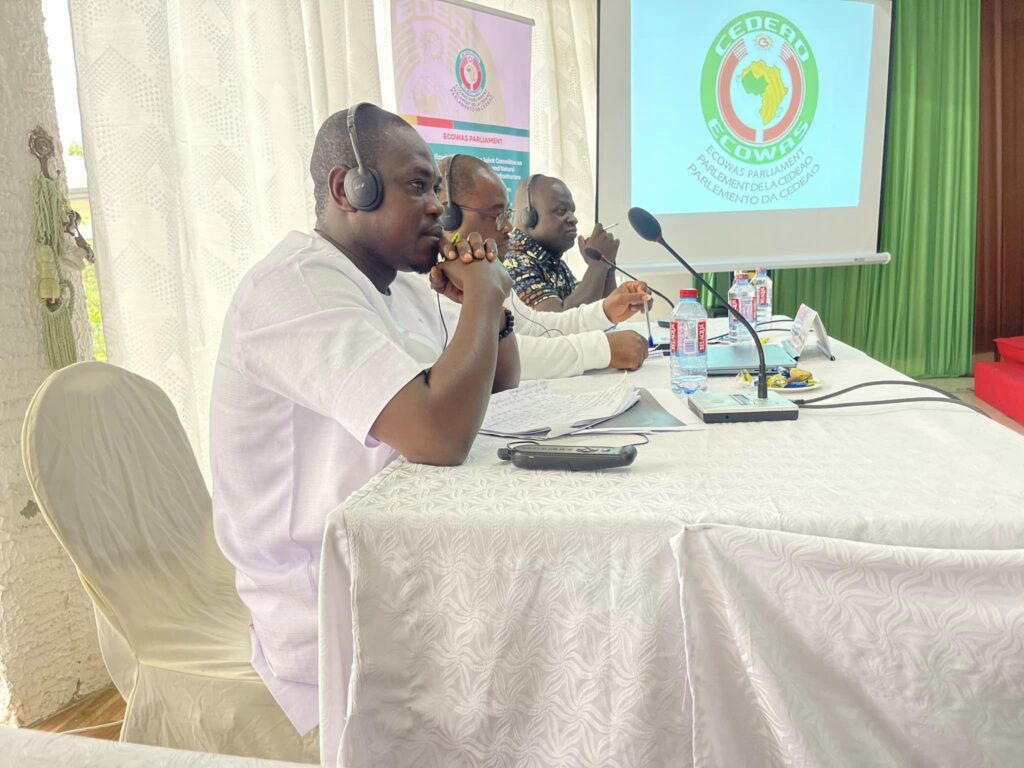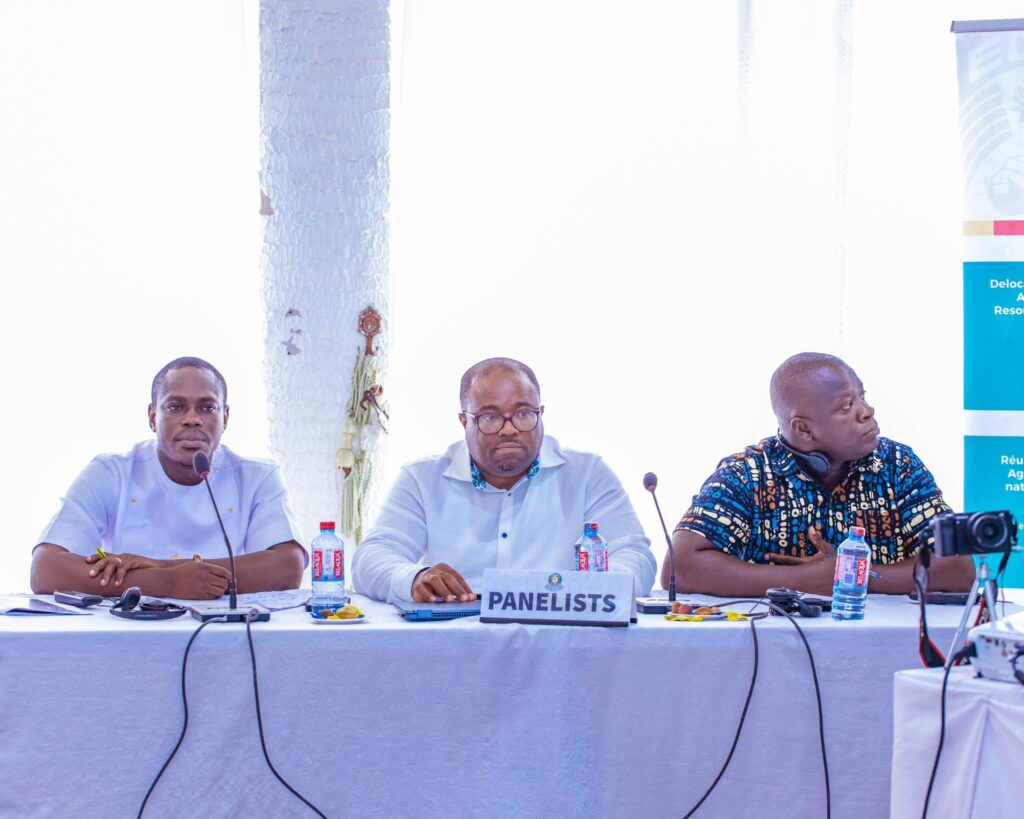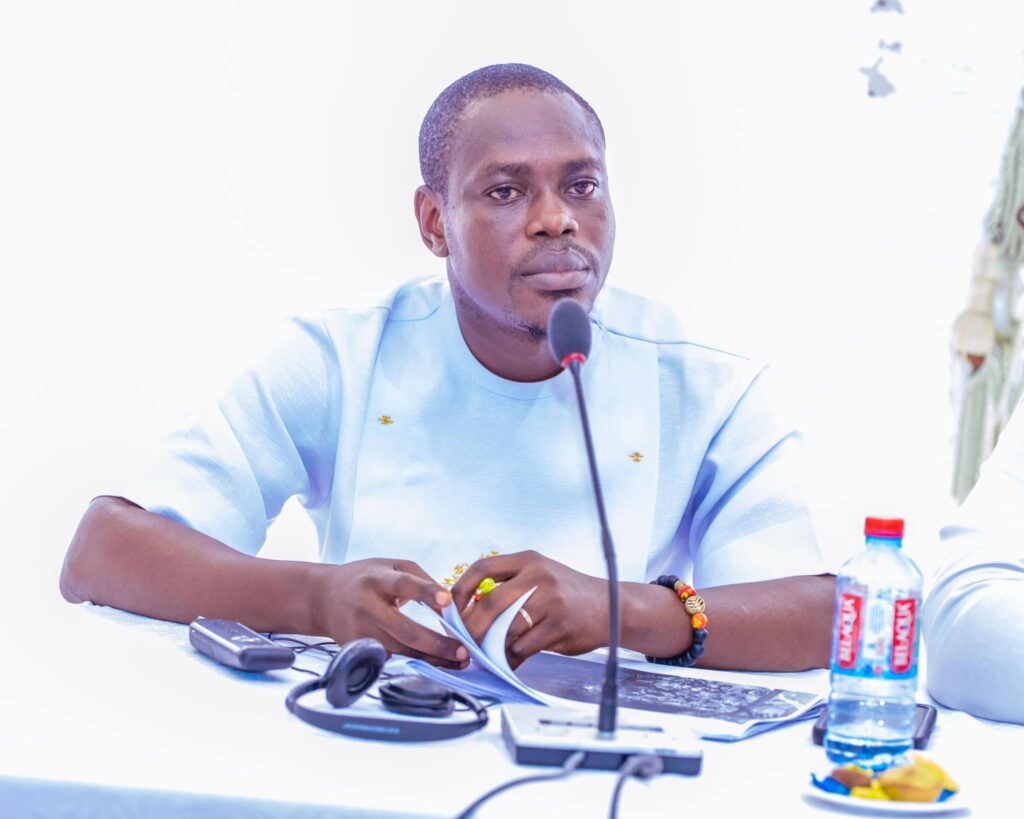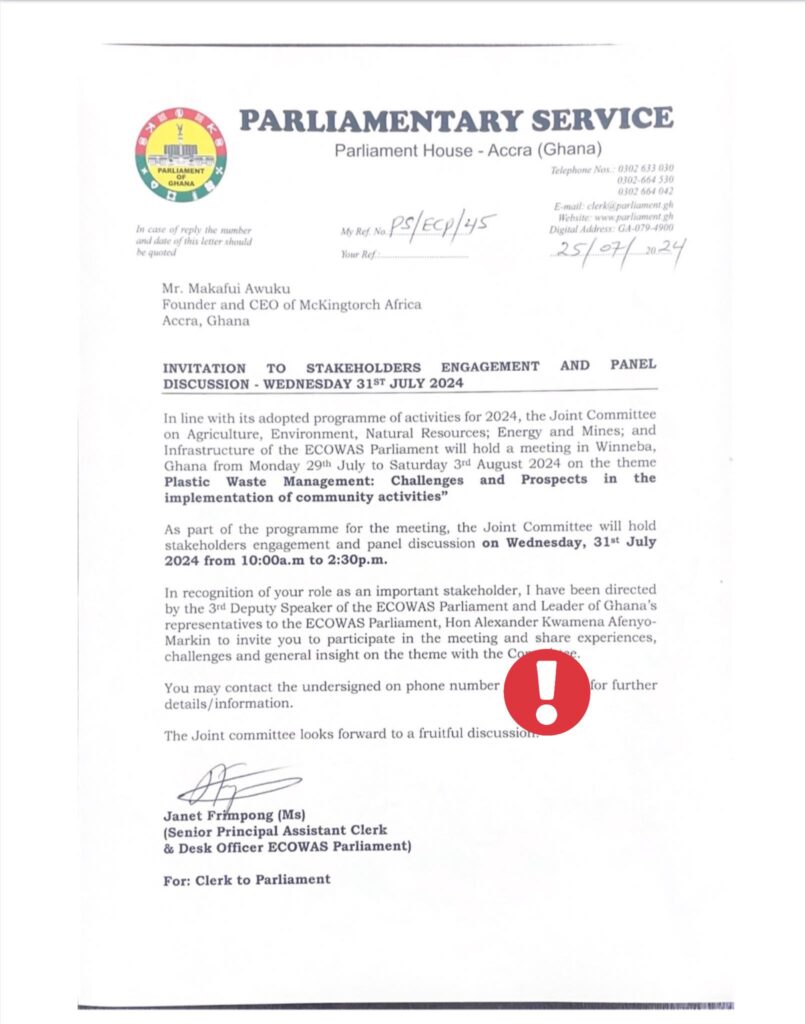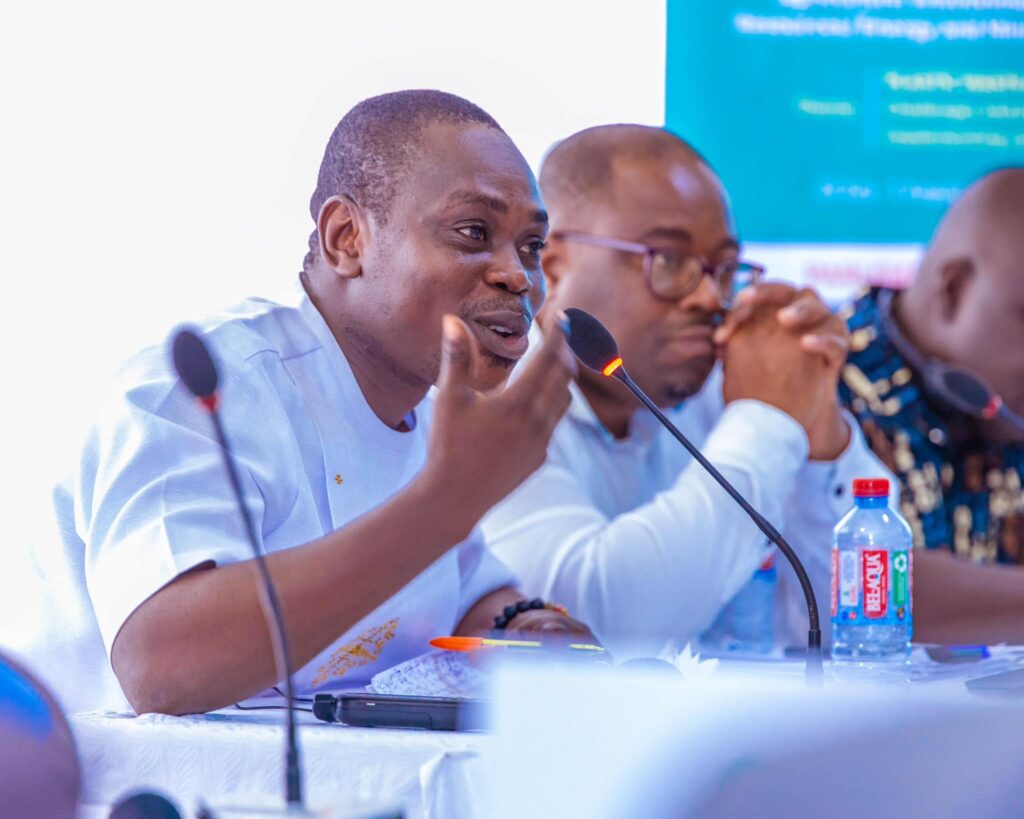In 2019, our CEO had the privilege of contributing to Ghana’s National Plastic Waste Management Policy that was launched by the president of Ghana in 2019 and passed into law by the Parliament of Ghana in 2020. Four years later, he got an invitation from the Parliament of Ghana to sit on a panel to discuss issues relating to plastic waste management in the Economic Community of West African States (ECOWAS) region. Legislators from all 15 countries were in the session as we explored sustainable interventions to address the issue in the region. The 15 members of ECOWAS are Benin, Burkina Faso, Cabo Verde, Côte d’Ivoire, The Gambia, Ghana, Guinea, Guinea-Bissau, Liberia, Mali, Niger, Nigeria, Senegal, Sierra Leone and Togo.
The highlights of his submissions included key low hanging fruits we could make impact with including;
- The challenge of an outright ban of plastics or a no ban at all conversation. It is critical for us to start with some forms of bans including bans at government institutions as most of our governments are the largest employer and due to traffic challenges most people would eat at least two meals at work and generate much plastic waste doing so. Also, government and state events include sustainability into the implementation of events to avoid single waste plastic generation for all these events while we ban single use plastics in our airports, tourism sites and all sanctioned outdoor events.
- Secondly, the pollution problem is not a plastic issue as Africa loses 40% of food we produce while close to 300 million people on the continent suffer from hunger and starvation. Plastic waste is not the biggest waste problem we have on the continent and the challenge is a lack of waste recovery value-chains that can turn food waste to compost, plastic into new raw materials, sand waste in drains into building blocks for construction and turn fabric waste, glass waste, paper waste, e-waste, scrap waste and other waste into new products to tackle the biggest challenges we have in various sectors.
- Thirdly, also in the meeting there was a lot of talk about eating in leaves and not plastics but as an entrepreneur and innovator the question he asked was what we have done in the region to invest in commercial farming of these leaves and having them on our shelves accessible to organizations and homes to use for wrapping foods? We have nothing but just talk about it without commercializing it.
- There was also an issue of misconceptions regarding why our coastal communities are extremely polluted and how people believe the waste on our coasts are generated by the coastal dwellers. He explained that the major cities have storm drain networks across the cities that empty excess rain water into the rivers and sea and because we leave everything in the environment the water carries everything into the sea and onto our beaches robbing us of good tourism revenues. The coastal communities are responsible for less than 5% of this waste and the lack of dedicated waste recovery services for our beaches that will keep them free from pollution and enhance their tourism revenue generation potential. This particular issue is one the tourism authority should be interested in and allocate some of their budget to support the waste management sector to achieve
Finally, he spoke about the fact that in Ghana for instances, we have at least 4 levies on plastic waste and sanitation yet we still can’t deal with the problem as the money is being used for other things as it goes into consolidated funds and the actors in the sector are not getting the needed support to implement sustainable interventions . Even though across the region there are amazing innovations like the Mckingtorch school desk project from pure water waste that can be used to tackle issues of quality education in rural areas where children are learning on the floor, there is a lack of interest and investment to support innovators to implement them and commercialize them as durable long term solutions to tackle the problem. We have solutions, let’s collaborate to let it benefit the region and continent.
